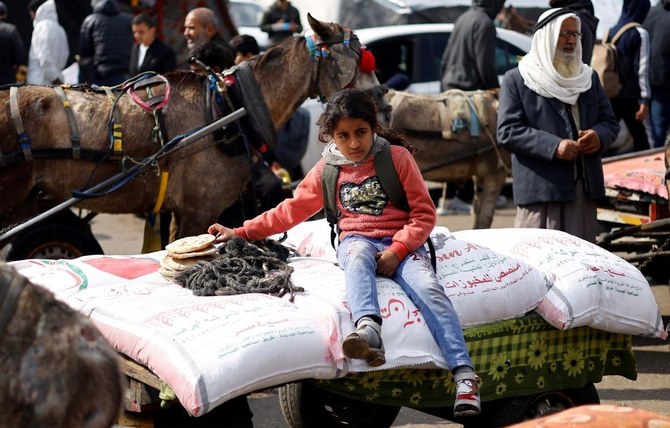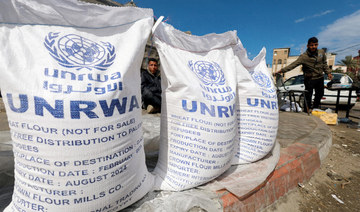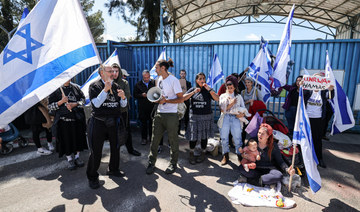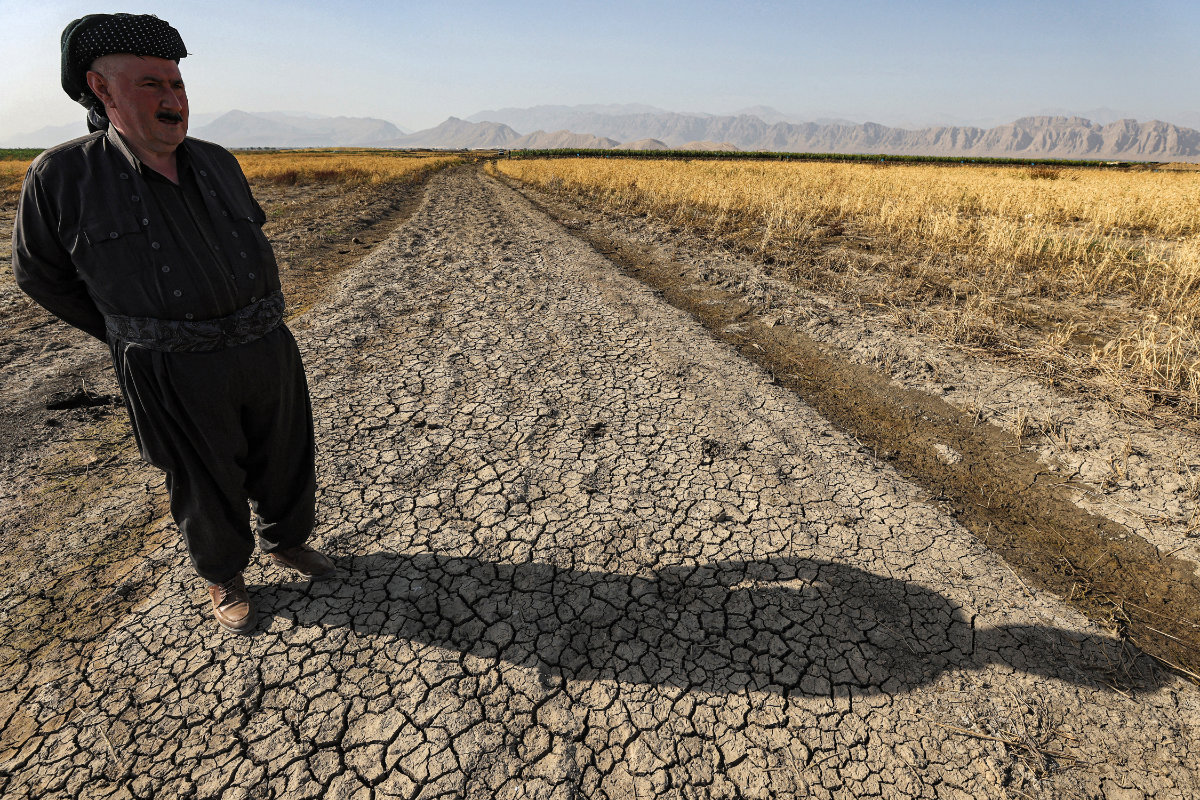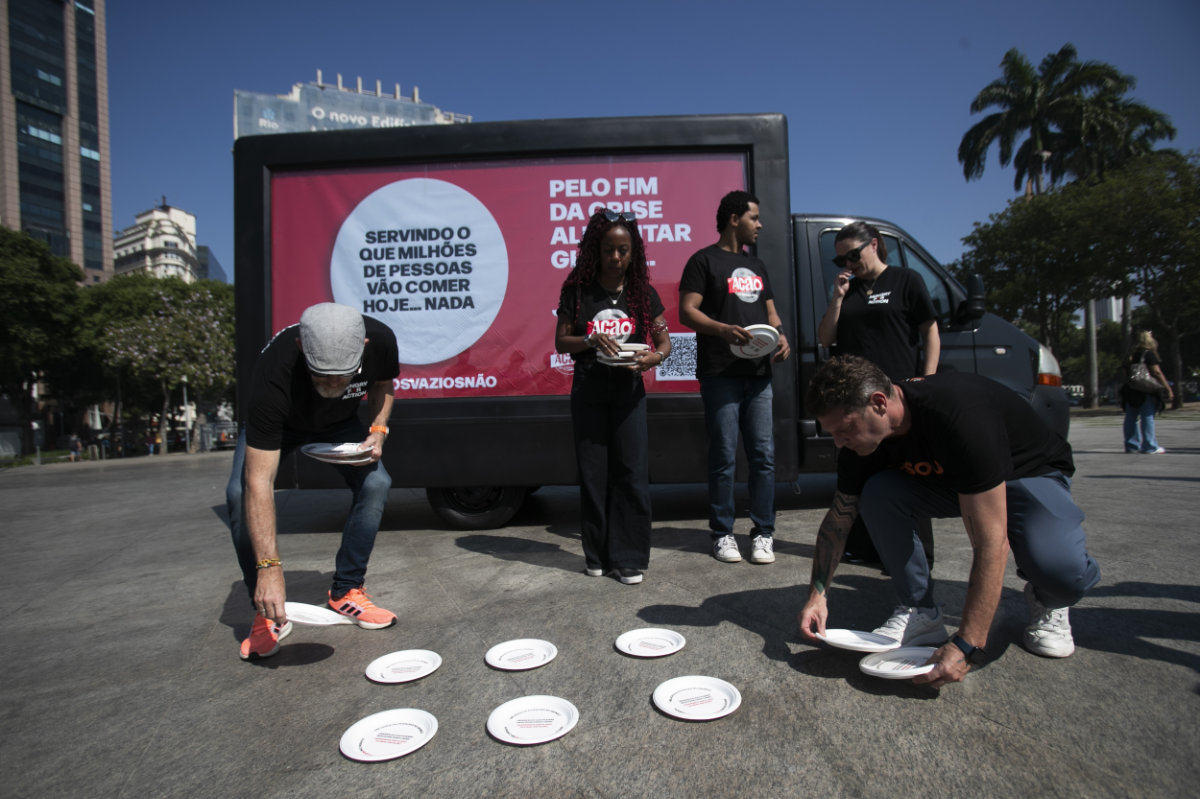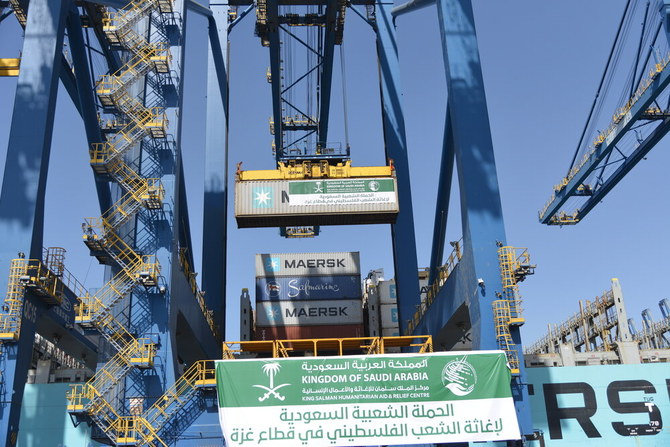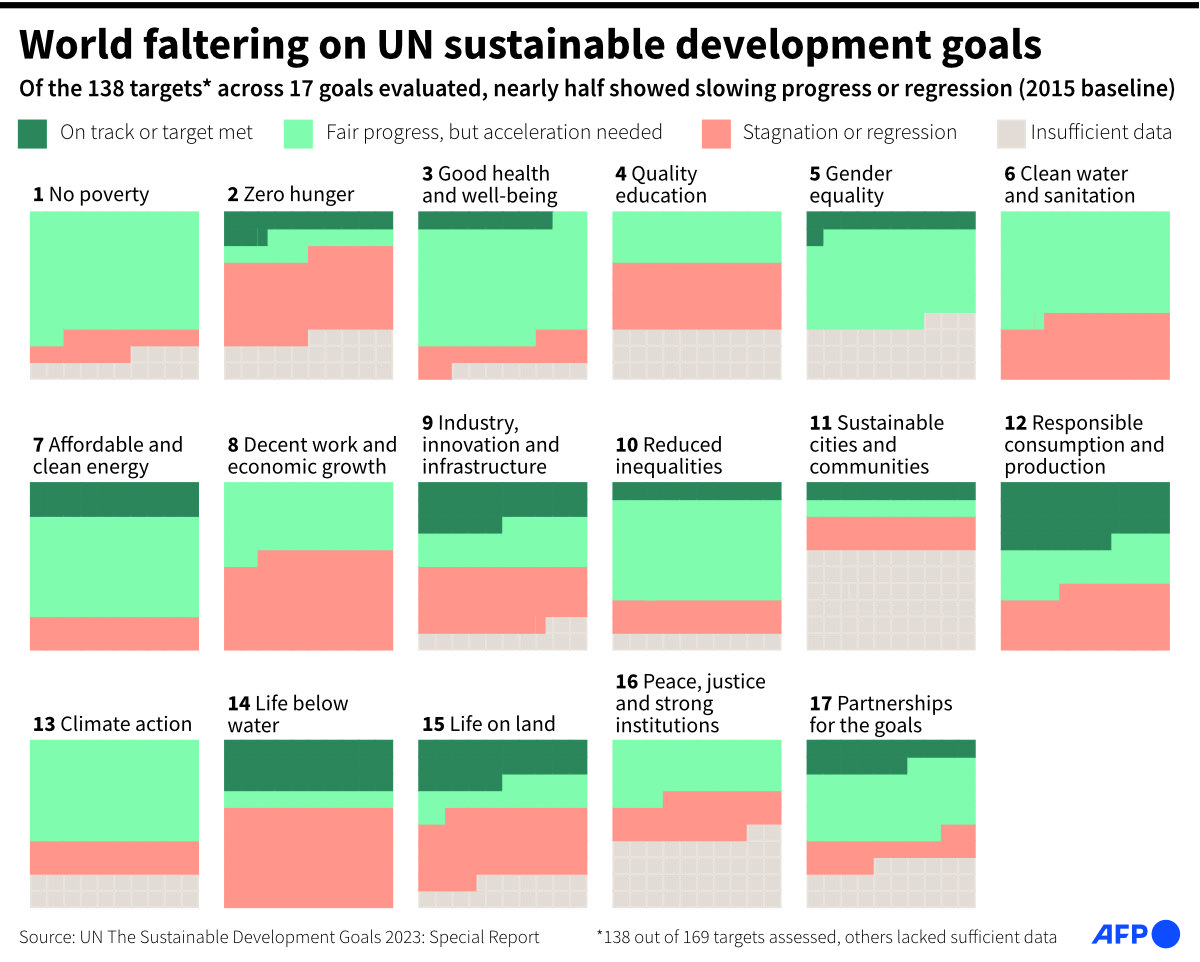LONDON: The planning director of the UN Relief and Works Agency for Palestine Refugees in the Near East has said the “squeezed” organization must remain “the backbone of any humanitarian response” to preventing starvation in Gaza.
Sam Rose warned that 300,000 people in Gaza are at risk of famine as Israel hampers efforts to get aid into the enclave, six months after the outbreak of war following the Oct. 7 Hamas attack.
Earlier this year, UNRWA had its funding drastically cut by 16 donor states after Israel accused 12 employees of having taken part in the attack, which left around 1,200 people dead.
More than half of the countries have since reinstated funding, and earlier this year US State Department spokesman Matt Miller said the White House had “repeatedly made clear to the Israeli government the important role that UNRWA plays in delivering humanitarian assistance.”
But on March 22, the US Congress passed a law banning UNRWA funding — worth $300 million per year — until March 2025.
The UK has yet to resume funding, while Germany has withheld funds for UNRWA’s Gaza operations.
Rose told The Guardian: “Our space is continuing to be squeezed at a time when the international community urgently needs to get as much assistance as possible to people in the north (of Gaza).”
A report by France’s former Foreign Minister Catherine Colonna is expected to be published on April 20, recommending that UNRWA publish clear guidelines detailing how it will ensure it and its employees remain politically neutral.
UNRWA says a degree of indirect contact with the authorities in Gaza is necessary to maintain its operations there, as is often the case for UN agencies in many other parts of the world.
Israel, though, considers this tantamount to active cooperation, and has said it will frustrate UNRWA’s work in the West Bank as well as Gaza.
Rose said: “It is also becoming increasingly difficult for UNRWA to operate in East Jerusalem, because our international staff aren’t getting visas and our own national staff aren’t getting permits to come into the city.
“Imports have also been restricted and a bank account with an Israeli bank has also been frozen.
“So whilst the attention is on Gaza, what’s happening in the West Bank cannot be overlooked.”
He said Israel’s efforts to hinder UNRWA would be counterproductive and impractical. “UNRWA is a 75-year investment by the international community. This shouldn’t be about what we can replace, but what the international community can do to make sure that this war is the last war, to safeguard the lives, freedoms and the future of Palestinians and Israelis by refusing a return to the status quo,” he added.
“The simple reality is that no other UN organisations are set up to deliver education to hundreds of thousands of children or healthcare to over 1 million.”
Rose, who recently returned to the UK from Gaza, welcomed news that Israel is to open more crossings for aid into Gaza following discussions between US President Joe Biden and Israeli Prime Minister Benjamin Netanyahu last week.
But Rose said UNRWA only has enough funding to provide food for the people in Gaza who rely on it until May.
“People are wandering around looking for water, looking for food. Even international staff, who are very privileged in the context of Gaza, come out hungry most times because there’s so little food. We can’t bring much in ourselves and there’s very little in the market at prices anyone can afford,” he added.
“And then there’s just a sense that the longer it goes on, the more and more people are just exhausted.
“Every time you’re woken in the night by an air raid or a tank shell, you’re not starting from zero, you’re in a slightly worse place than you were a time before. People are often coming to work traumatised and in a state of shock.”
He continued: “I don’t want to talk blithely about these things. But one can imagine soon just a total breakdown for lots and lots of people. There’s only so long you can cope with the misery.
“We’ve got staff who come to work to forget about what is going on outside because there’s a structure and you can forget about the fact that outside, there’s no clothes for your kids, no medicine, no food, and sanitary conditions are appalling.
“So many of their colleagues have had somebody killed and they lost their homes, and they lost everything.
“They’ve literally got the bags that they were carrying, and, you know, staff that were relatively well off have moved 10 or 15 times because they just followed the conflict around.
“Many are in tents because they are safer than if you are in a building that has an internet connection, and somebody latches on to that internet connection as a target, then the building could go up.”
Rose also highlighted the role UNRWA plays in education in Gaza, but said most of the schools it operates have either been damaged, destroyed, or are being used as shelters.
“Anyone thinking rationally wants to get out of this, or is unwilling to come back home since they’ve lost everything,” he said.
“Palestinians highly, highly value education and take it very seriously, and lots of people are leaving, people just want to get their kids out. They know the numbers of buildings that have been destroyed, and all the universities have been flattened, and it’s currently hard to see a long-term future,” he added.
“Palestinians are not idiots. They are well educated, they’re very worldly given the fact that they’ve never been allowed to leave their world.”



